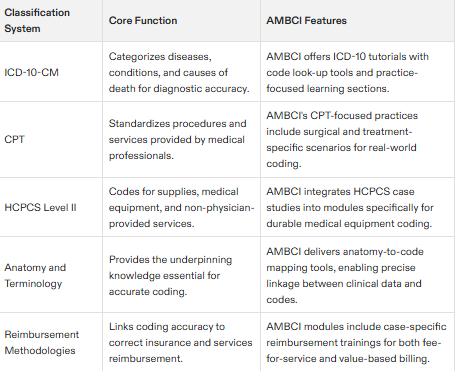Mastering the Pre Employment Medical Coding Test: A Guide to Success
Understanding the Importance of Pre Employment Exams
Pre employment exams are a crucial step in the hiring process for medical coders, as they assess a candidate’s coding skills and knowledge.
Medical coding exams test a candidate’s ability to accurately assign codes to medical records, ensuring compliance with healthcare regulations.
Passing a pre employment medical coding exam demonstrates a candidate’s competence and readiness to work in a healthcare setting.
Preparing for the Medical Coding Exam
To prepare for the exam, medical coders should review medical terminology, anatomy, and coding guidelines. The journey of becoming a certified professional coder involves significant emotional and educational challenges, especially while preparing for the CPC® certification exam. Practicing with sample questions and case studies can help medical coders develop their coding skills and build confidence.
Utilizing online resources, such as coding tutorials and webinars, can provide additional support and guidance.
Understanding the Test Format and Question Types
Understanding the test format and question types is crucial for medical coders preparing for pre-employment exams or certification exams like the CPC exam. The test format typically includes multiple-choice questions, fill-in-the-blank questions, and sometimes case studies or coding scenarios. Familiarizing yourself with these formats can significantly enhance your readiness and confidence on exam day.
Multiple-Choice Questions: These questions require you to select the correct answer from a list of options. They often test your knowledge of medical terminology, anatomy, and coding guidelines. Practicing multiple-choice questions can help you quickly identify the correct answers under time constraints.
Fill-in-the-Blank Questions: These questions require you to provide the correct term or code in a blank space. This format tests your recall ability and understanding of specific coding concepts. Regular practice with fill-in-the-blank questions can improve your accuracy and speed.
Case Studies or Coding Scenarios: These questions present real-life scenarios where you must apply your coding skills to assign the correct codes. This format assesses your ability to analyze medical records and apply coding guidelines accurately. Working through case studies can help you develop a systematic approach to coding complex patient scenarios.
Types of Questions to Expect:
Anatomy and Physiology Questions: Test your understanding of the human body and its functions.
Medical Terminology Questions: Assess your knowledge of medical terms and their meanings.
Coding Guidelines Questions: Evaluate your familiarity with coding rules and regulations.
Patient Scenario Questions: Challenge your ability to apply coding skills to real-world patient cases.
By understanding the test format and question types, you can tailor your study approach to cover all necessary areas, ultimately increasing your chances of passing the exam.
Clinical Classification Systems and Medical Terminology
Understanding clinical classification systems, such as ICD-10-CM and CPT, is essential for medical coders.
Familiarity with medical terminology, including anatomy and physiology, is critical for accurately translating patient diagnoses and treatments into coded alphanumeric codes.
Medical coders should be able to apply clinical classification systems and medical terminology to real-world scenarios.
Reimbursement Methodologies and Health Records
Medical coders should understand reimbursement methodologies, including fee-for-service and value-based care.
Accurate coding is critical for reimbursement, as it ensures that healthcare providers receive fair compensation for their services.
Medical coders should be able to analyze health records and assign codes that reflect the patient’s diagnosis and treatment.
Exam Day Strategies and Tips
On exam day, medical coders should arrive early and be prepared to complete the exam within the allotted time (typically two hours). Pre-employment coding assessments are crucial in evaluating the coding competencies of job candidates, ensuring they meet the high standards required for medical record coding roles. Reading the exam instructions carefully and managing time effectively are essential for success. Medical coders should stay focused and avoid distractions during the exam.
Overcoming Common Challenges
Medical coders may face challenges, such as limited experience or difficulty with complex coding scenarios.
Practicing with sample questions and seeking feedback from coding managers or mentors can help overcome these challenges.
Staying up-to-date with coding guidelines and regulations is essential for success in medical coding.
Job Search Strategies for Medical Coders
Medical coders should tailor their resumes and cover letters to highlight their coding skills and experience.
Networking with coding professionals and joining professional organizations, such as AAPC or AHIMA, can provide job search opportunities.
Medical coders should be prepared to complete pre employment exams as part of the hiring process.
Staying Motivated and Patient
Job searching can be a lengthy and challenging process, but medical coders should stay motivated and patient.
Continuing education and professional development are crucial for a medical coder to stay current with industry developments and enhance their job prospects.
Celebrating small victories and seeking support from colleagues and mentors can help medical coders stay motivated.
Conclusion and Next Steps
Mastering the pre employment medical coding test requires preparation, practice, and persistence.
Medical coders who pass the exam demonstrate their competence and readiness to work in a healthcare setting.
By following the tips and strategies outlined in this guide, medical coders can achieve success and advance their careers in medical coding.





